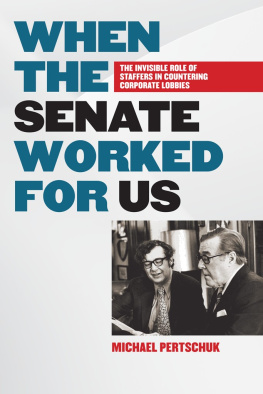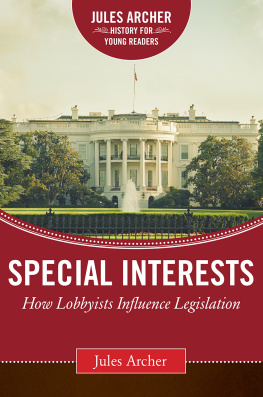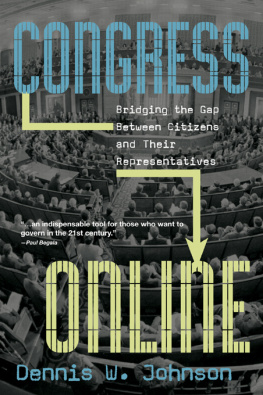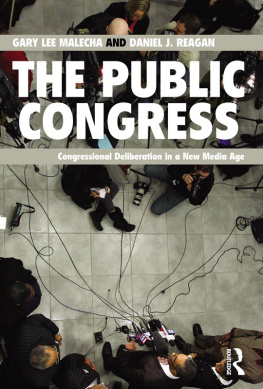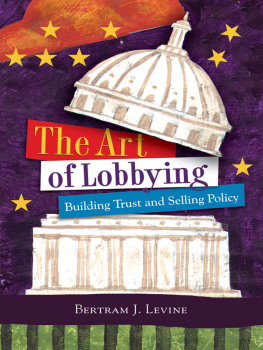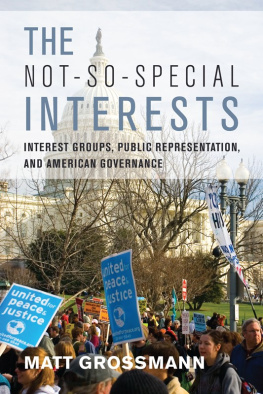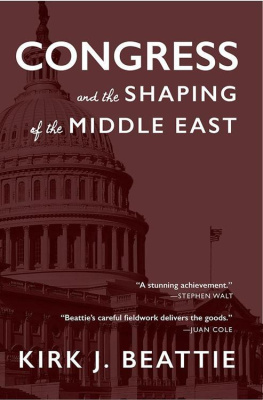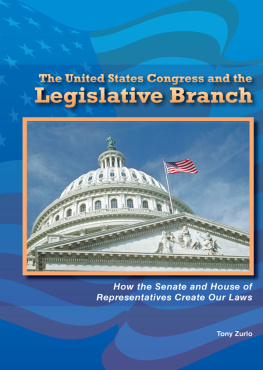2017 by Vanderbilt University Press
Nashville, Tennessee 37235
All rights reserved
First printing 2017
This book is printed on acid-free paper.
Manufactured in the United States of America
Cover design: Rich Hendel
Text design and composition: Dariel Mayer
Library of Congress Cataloging-in-Publication Data
LC control number 2016044846
LC classification number KF373.P478 A3 2017
Dewey classification number 373.7307/1
LC record available at lccn.loc.gov/2016044846
ISBN 978-0-8265-2166-8 (cloth)
ISBN 978-0-8265-2168-2 (ebook)
Introduction
In a querulous conversation late in Richard Nixons presidency, John Ehrlichman, Nixons domestic policy director, bemoaned the torrent of new regulatory laws from Congress. These laws impinged on the freedom to harm, sicken, deceive, and pollute of the morally impaired business lobbyists to whom Nixon owed allegiance.
Signing progressive regulatory laws was hardly what Nixon had expected when he wrested the presidency from the liberal Democrats. It was as if John F. Kennedy or Lyndon Johnson were still president. Ehrlichman didnt dwell on the laws contents, but he fingered the culprits: not the elected legislators, not even the Democrats who still controlled the Congress, but their unelected staff members. These young hellhounds, he insisted, were goading otherwise sober and reasonable legislators into inflicting Sisyphean regulatory burdens on the already overregulated. As I vividly remember, he scorned the more aggressive staff members as bumblebees, hovering around the honey of power.
I was then serving as the majority Democratic staff director of the Senate Commerce Committee, chaired by Washington State senator Warren G. Magnuson. Ehrlichman was substantively right but semantically wrong: bumblebees pay no attention to honey; only honeybees do. But bumblebees do sting. Nixon felt that sting when he was forced to sign laws he disdained, many of which had been shepherded through Congress by liberal Democratic and several liberal Republican staffers. Failing to sign the bills would evoke broad public condemnationfueled by the hated liberal pressor a veto override by the Democratic majorities and their liberal Republican allies in both houses of Congress.
Along with my fellow Magnuson staffers, I was bursting with pride over what we readily accepted as Ehrlichmans backhanded tribute to our role in incubating a good number of the laws that plagued Nixon. Bumblebee would become our badge of honor. My own Bumblebee pride was soon boosted by the ranking Republican on the Senate Commerce Committee, Norris Cotton of New Hampshire, a senator who steadfastly voted against much of Magnusons consumer protection and regulatory public health legislation. Cotton proudly called himself a mossback New England conservative and was tight with the Republican Senate leadership and the Nixon White House, but he was also a close friend of his liberal Democratic counterpart, Senator Magnuson. Happily for me, their mutual affection trickled down to me and my Republican staff counterpart. Together with him, I often conferred collegially with Senator Cotton. The senator was always ready to tease me for my liberalism, and when we next met after Ehrlichmans rant, Cotton gleefully reported that during recent strategic conclaves in the White House I had been singled out for scorn.
Ehrlichman was right in crediting staff members with a role in toughening the liberal laws that reached the presidents desk for signature. But he was wrong in implying that the impetus came only from staff. As James Q. Wilson points out in Bureaucracy, his examination of Congress, the liberal activism that we experienced was the product of entrepreneurial politics.
Elected politicians, he explains, won reputations and power by leaping to the front of public enthusiasm for environmental protection and other popular causes, not least consumer protection and public health. His account of the collaboration of virtuous senators consumes nearly five hundred pages. These pages are so crowded with good deeds that even Magnusons voluminous legislative accomplishments are squeezed into just two of them. The role of staff, however, is virtually invisible.
My own experience networking with staff members from other committees and senatorial offices taught me that behind almost every successful entrepreneurial senator was a team of facilitating staff. Many were simply doing the bidding of their bosses, but others were as ambitious as we were. Shapiro himself played vigorous roles in the 1970s as the highly respected staff director and chief counsel to the Senate Select Committee on Ethics, counsel to the majority leader, minority staff director, and chief counsel to the Governmental Affairs Committee. Yet he takes no credit for his part in the legislative achievements of the senators he chronicles and makes no attempt to convey the roles of other staff in those achievements. If he had done so, his book would be too heavy to lift. In one sense, then, this book is designed to complement Shapiros narrative of bipartisan comity among many senators in the 1960s and 1970s. But my focus is far more narrow. I present a selection of stories about the staff of one high-achieving Senate committee, powered by Magnusons Bumblebees. I believe that the multifarious roles we Bumblebees played are representative of the roles played by other staff members in the achievements of the senators and committees that Shapiro celebrates.
Our work, however, was unique. Between the early 1960s and the late 1970s, the number of progressive laws that came out of the Senate Commerce Committee bearing the invisible fingerprints of entrepreneurial staff comes close to the output of all the other Senate committees combined. As we shall see, the force that powered the Commerce Committees productivity was a harmonic convergence of the strengths, strategies, and needs of two monumental figures: Chairman Magnuson and my predecessor as staff director, Gerald Jerry Grinstein.
Grinstein brought to bear his passion for enabling the committee to do good; Magnuson brought to bear his formal power, strengthened by decades of Senate seniority, and the informal power born of the affection in which he was held not only by his Democratic colleagues but by many Republican senators who liked and trusted him. That esteem helped bring stability and concord to both the committee and the full Senate.
One result of Magnusons and Grinsteins combined strengths was the unmatched expansion of the committees professional staff, most of whom were under their direct control. By the mid-1970s, the ranks of professional Magnuson Commerce Committee staff members had expanded to over forty, including several credentialed experts. In an effort to determine how to select Magnuson Bumblebee stories for this book, I turned to the work of David Price, who undertook an assignment from the consumer advocate Ralph Nader in the summer of 1970. With remarkable ambition, Nader had convened more than a hundred volunteers to produce unalloyed profiles of every member of Congress and every congressional committee. Price was assigned to the Senate and House Commerce Committees. He brought with him deep investigative skills and the experience of serving as a staff member for one of the Senate Commerce Committees public interest advocates, Senator Edward Lewis Bob Bartlett of Alaska. Price was so perfectly attuned to the workings of the Congress that he went on to be elected to the House of Representatives from his North Carolina home for at least thirteen terms.

